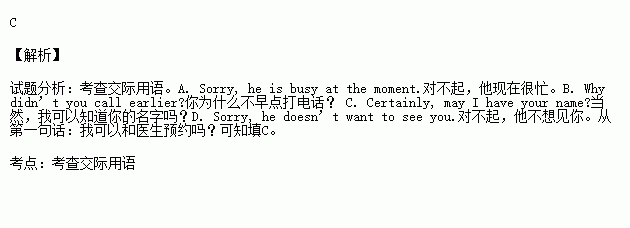题目内容
—Hello, may I have an appointment with the doctor?
—_________
A.Sorry, he is busy at the moment.
B.Why didn’t you call earlier?
C.Certainly, may I have your name?
D.Sorry, he doesn’t want to see you.
练习册系列答案
 轻松课堂单元期中期末专题冲刺100分系列答案
轻松课堂单元期中期末专题冲刺100分系列答案
相关题目

